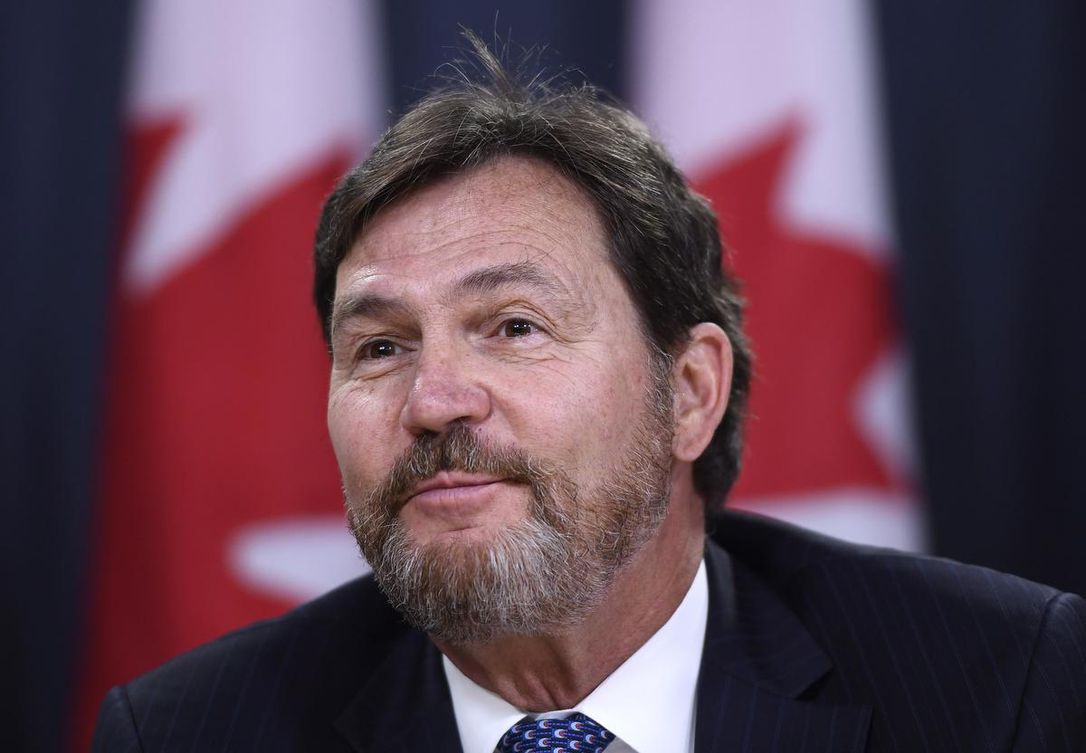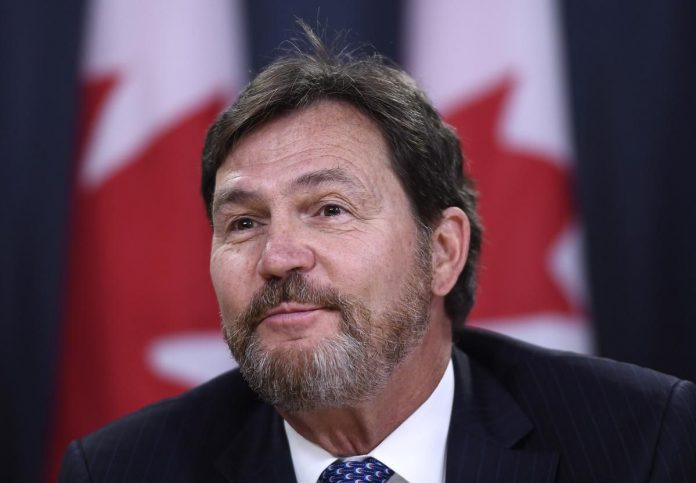[ad_1]
OTTAWA— Canada’s Chief Justice Richard Wagner said he sees the country’s top court as the most progressive in the world with a leadership role to play to promote democracy, the rule of law and “moral values” at home and abroad.
In a wide-ranging news conference, his first since being named in December to replace former chief justice Beverley McLachlin, Wagner said the Supreme Court of Canada’s main job is to decide cases brought before it, and declined comment on contentious issues he could soon face, like pot legalization, pipelines or the limits on provincial environmental jurisdiction.

But he slammed the high imprisonment rates of Indigenous people as “terrible” and “a serious problem,” and said the Supreme Court “has a role to play” in the national project of reconciliation with Indigenous people. He pointed to a June 13 ruling — which he authored — in Ewert vs the Correctional Service of Canada, where the court denounced the discriminatory way the federal prison system assessed Indigenous inmates and the likelihood they would re-offend.
“We are in a process of reconciliation,” said Wagner. “It is going to be a long process. It has to be done. It has to be done the right way, and it involves many stakeholders,” he said, listing the government, various services, and the court. “We are committed to do it within our own jurisdiction.”
In contrast to his predecessor’s unwillingness to be drawn into discussions that could touch on political subjects, Wagner’s willingness to engage with reporters for 45 minutes on a range of questions signalled he is prepared to be a bold, more open and more assertive chief justice.
Wagner said the high court and its top judge should provide leadership through its rulings, “presence” and judicial speeches at a time when fundamental democratic and “moral values” are being undermined in the world because there are “people outside the country that are looking to us to get our support because they need our support.”
Without naming any leader or country, or specifying if he was referring to dictatorships or wobbly democracies, Wagner said: “Right now we see outside Canada that some of our basic values, fundamental values and moral values, are seriously attacked by other countries or leaders of other countries, who pretend to be democratic,” he said in English. (In French, Wagner’s first language, prétend means “claim.”)
“And in those circumstances, I believe that Canada…Canadian institutions have a role to play, not only inside Canada, but also outside the country.
“We are not a superpower, economically speaking. We’re not a superpower in military terms. But we are a power in terms of the rule of law, in terms of the moral values.”
In a series of revealing answers to questions about his approach to judicial lawmaking, judicial misconduct, and the need to be accountable to the public, Wagner said he has pressed the federal Liberal government to move more quickly on reforms to speed up judicial discipline. He called the government’s failure to act on a February recommendation by the Canadian Judicial Council to fire a Quebec judge in the Abitibi region — which now has only one sitting judge — “not satisfactory.”
Whereas McLachlin is widely seen as a chief justice who sought and valued consensus judgments, Wagner said he believes robust dissent on a court in a democracy is “more transparent,” and “as long as the dissent is made and is released in order to explain, with civility, a legal position, I think it’s a good thing.”
He underlined his belief that the Canadian constitution is “a living tree” and its interpretation not limited to the original meaning of its text. Rather, Wagner said, it must be interpreted in the context of societal, technological, and other changes, while incorporating factors such as unwritten legal or constitutional principles — a matter of debate among legal scholars.
Wagner pointed to the high court’s decision in the assisted suicide case, known as Carter, which overturned its own precedent set 20 years earlier in the case of Sue Rodriguez, a patient with ALS. It forced the federal government to pass a new law to decriminalize medical assistance for certain dying patients, and was the result of some different facts, said Wagner, “but it also depended on the evolution of society, the evolution of technology, evolution of medicine, evolution equally of the moral values that link most Canadians.”
Asked if he agreed with Vancouver defence lawyer Joe Arvay’s characterization of the Supreme Court of Canada as “the most progressive in the world,” due to rulings like Carter (which Arvay litigated and won), Wagner said: “I would say so, yeah, and I must say I’m very proud of that.”
Wagner said the Canadian high court is “unique” as a bilingual institution, that encompasses Canada’s civil and common law jurisdictions, and has managed to “somehow” carve out a constitutional jurisprudence with its ability to interpret text and evolve with the times, and so has become a beacon for other international courts on health issues, the environment, democracy, rule of law and respect for institutions.
“I think that Canada and the courts will play a much important role on the international scene and for the benefit of all Canadians I would say.”
Wagner vowed to bring more openness and transparency to the workings of the court via news conferences, which he promised he would conduct annually, via simplified plain-language summaries of court rulings, more public outreach through traditional and social media, and by taking the Supreme Court of Canada on the road.
The high court’s nine-member bench will travel in 2019 to Winnipeg to meet with other appeal court judges from across the country, but Wagner would like to see the court to hold hearings outside Ottawa — something some scholars speculated could require a statutory change as the court is based in Ottawa, and its judges are obliged to live here.
No formal proposal for a travelling Supreme Court is under consideration but Wagner said afterward his idea could mean, for example, hearing a land claims appeal on Indigenous territory.
Wagner defended the court’s recent agreement with the Library of Canada and National Archives to retain judicial notes and papers for a 50-year period before they are disclosed to the public, saying in fact it was a step toward more openness and accountability because it guaranteed that notes and documents held by judges would be retained and eventually released. He said the 50-year period respects the secrecy around free-flowing judicial deliberations, which he said is in the public interest. Until now, he pointed out, a judge could destroy any of his or her documents. “Now we’ll keep a record.”
For all his willingness to discuss the court’s work, Wagner declined a request to respond to critics who said the court’s Trinity Western ruling denying accreditation to a Christian law school favoured the rights of LGBTQ people over religious freedom. “That’s one interpretation and I respect it,” he said. The court majority was “comfortable” with its reasons, and it was up to Canadians to consider, he said.
TOP STORIES, DELIVERED TO YOUR INBOX.
[ad_2]








